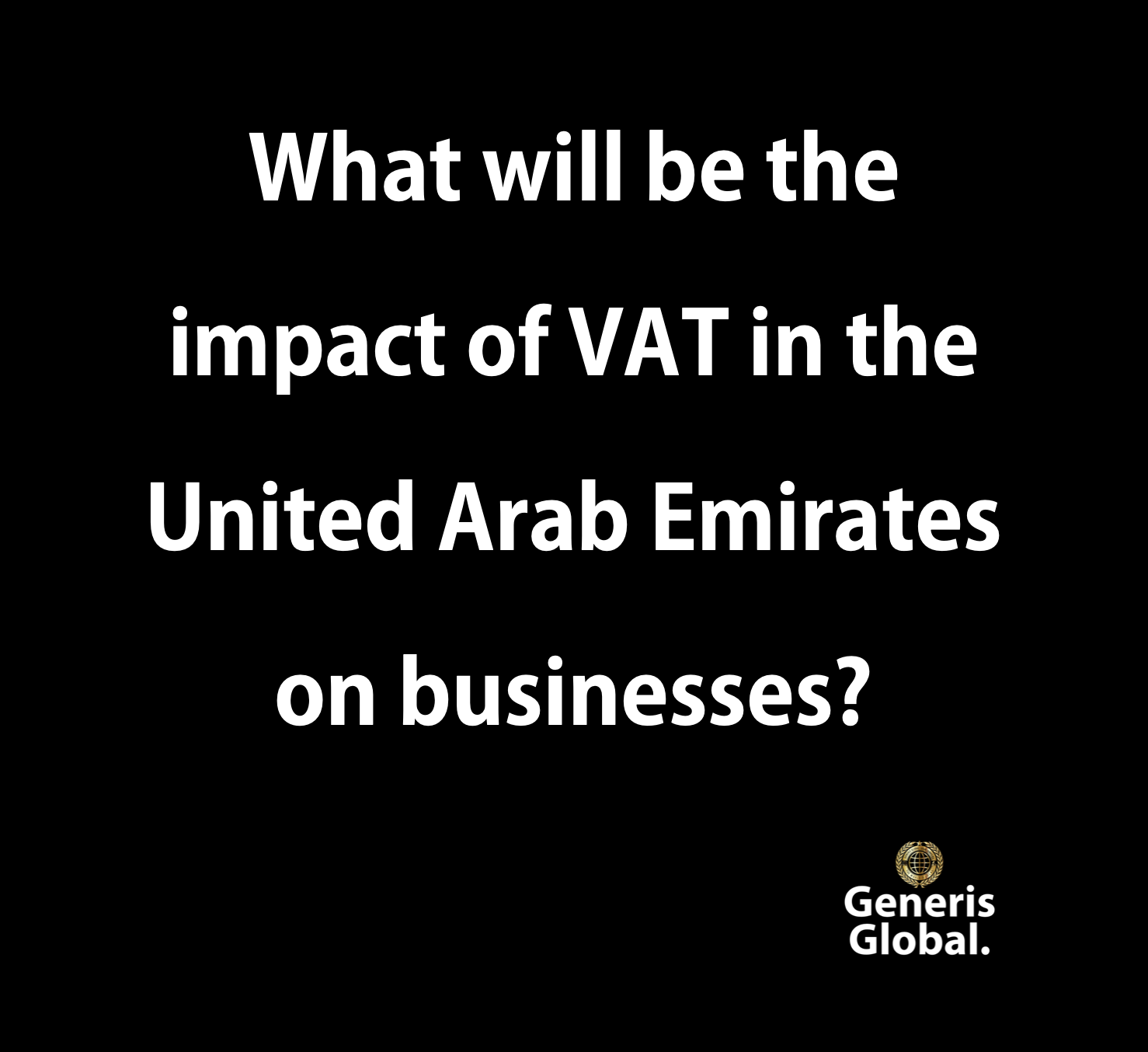VAT (Value Added Tax) is a system of taxation in the United Arab Emirates that will have an influence on not only the end-user, customers, and purchasers, but will also have an impact on commercial establishments and companies in the country as a whole. It has been proposed to implement VAT across the Gulf Cooperation Council (GCC) starting in January 2018, and businesses have expressed concern about their readiness in terms of the cost of doing business, applicable taxes regimes, the implementation of the taxation system, changes in the commercial law, and a variety of other factors.

It is true that VAT in the United Arab Emirates will have a significant impact on almost all departments inside a company, including human resources, finance, purchasing and procurement, information technology, marketing, and so on. Tax execution and transformation of their regularities will be the foundation for smaller businesses in the UAE, as well as the SME community, as they strive to become more compliant with tax management in the next weeks and months. Greater organisations and multinational corporations, on the other hand, will be familiar with tax systems since they have dealt with nations from all over the globe in the past.
However, this is not the only impact that companies may experience as a result of the introduction of VAT in the United Arab Emirates:
Companies must educate themselves on how to apply the UAE’s Value Added Tax (VAT) to their economic activities.
Businesses in the United Arab Emirates will have no trouble becoming familiar with the new tax system or reorganising their financial systems.
In order to assess the effect of VAT on the goods/products/services with which a firm interacts, business owners will need to re-evaluate their current suppliers.
Whether or whether it is essential to invest in extra personnel to facilitate tax collection is another issue that needs to be investigated further.
Additionally, companies have the option of splitting taxes with middlemen, suppliers, and customers. The impact of the 5 percent VAT, for example, would be less onerous if it were split in proportion to the number of people who would be affected.
Companies would not notice a significant difference in the amount of taxes in the UAE compared to other nations, as well as the taxation processes and regulations, which are maintained simple and accessible.
It is critical for small and medium-sized enterprises (SMEs) to apply VAT properly, or else it will constitute an extra expense to the company.
Another significant consequence is that companies must review their existing contracts in order to determine whether or not VAT has been adequately handled in them.
Small and medium-sized enterprises (SMEs) must rethink their company structures and commercial modules, which may no longer be relevant as a consequence of VAT implementation in the United Arab Emirates.
Businesses and commercial institutions will be required to maintain a VAT account and to make frequent reports and filings to the government on a regular basis.
